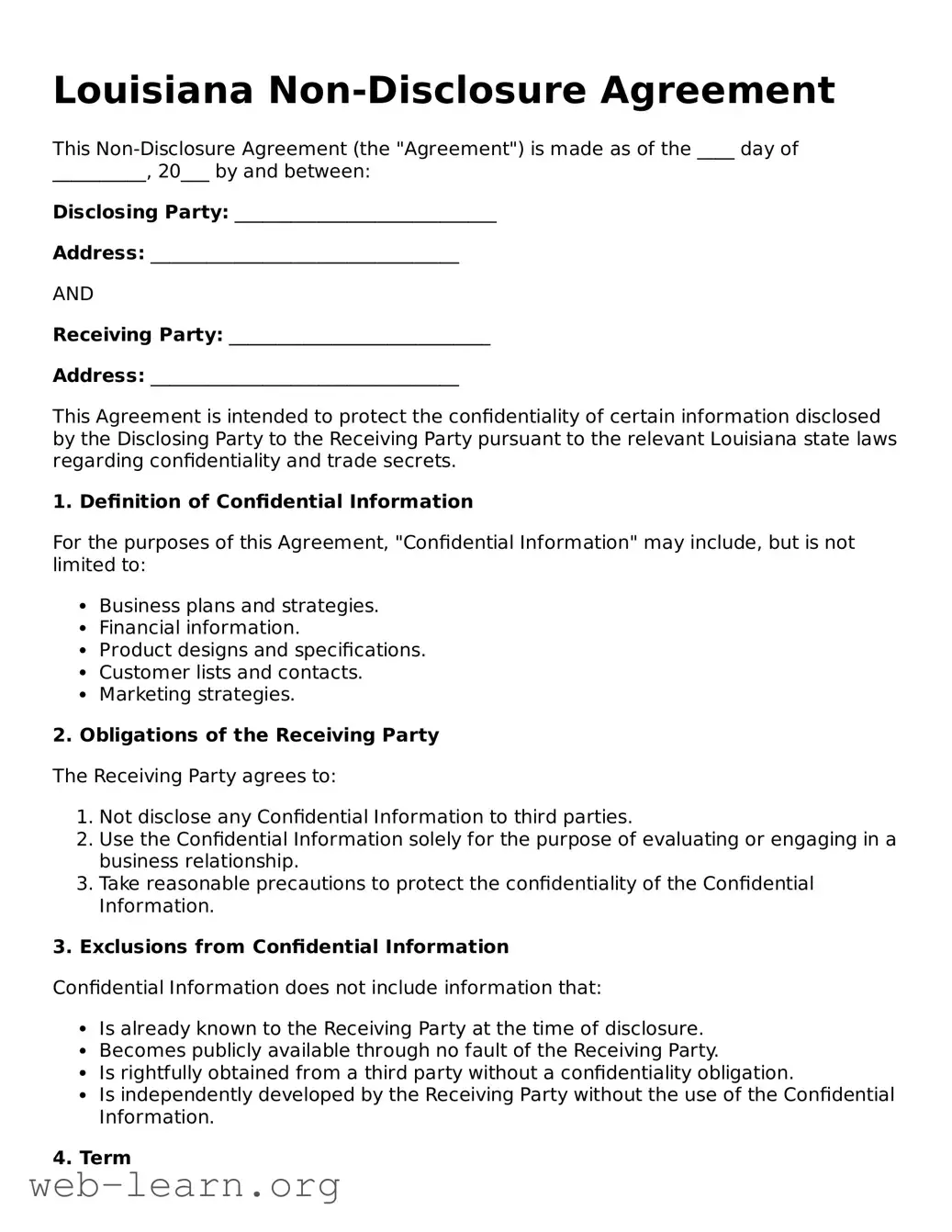Louisiana Non-Disclosure Agreement
This Non-Disclosure Agreement (the "Agreement") is made as of the ____ day of __________, 20___ by and between:
Disclosing Party: ____________________________
Address: _________________________________
AND
Receiving Party: ____________________________
Address: _________________________________
This Agreement is intended to protect the confidentiality of certain information disclosed by the Disclosing Party to the Receiving Party pursuant to the relevant Louisiana state laws regarding confidentiality and trade secrets.
1. Definition of Confidential Information
For the purposes of this Agreement, "Confidential Information" may include, but is not limited to:
- Business plans and strategies.
- Financial information.
- Product designs and specifications.
- Customer lists and contacts.
- Marketing strategies.
2. Obligations of the Receiving Party
The Receiving Party agrees to:
- Not disclose any Confidential Information to third parties.
- Use the Confidential Information solely for the purpose of evaluating or engaging in a business relationship.
- Take reasonable precautions to protect the confidentiality of the Confidential Information.
3. Exclusions from Confidential Information
Confidential Information does not include information that:
- Is already known to the Receiving Party at the time of disclosure.
- Becomes publicly available through no fault of the Receiving Party.
- Is rightfully obtained from a third party without a confidentiality obligation.
- Is independently developed by the Receiving Party without the use of the Confidential Information.
4. Term
The obligations of confidentiality shall remain in effect for a period of ____ years from the date of disclosure of the Confidential Information.
5. Governing Law
This Agreement shall be governed by and construed in accordance with the laws of the State of Louisiana.
6. Miscellaneous
Any amendments to this Agreement must be in writing and signed by both parties. If any provision of this Agreement is found to be unenforceable, the remaining provisions shall continue in full force and effect.
IN WITNESS WHEREOF, the parties hereto have executed this Non-Disclosure Agreement as of the date first above written.
Disclosing Party: ____________________________
Signature: _________________________________
Date: __________________________________
Receiving Party: ____________________________
Signature: _________________________________
Date: __________________________________
